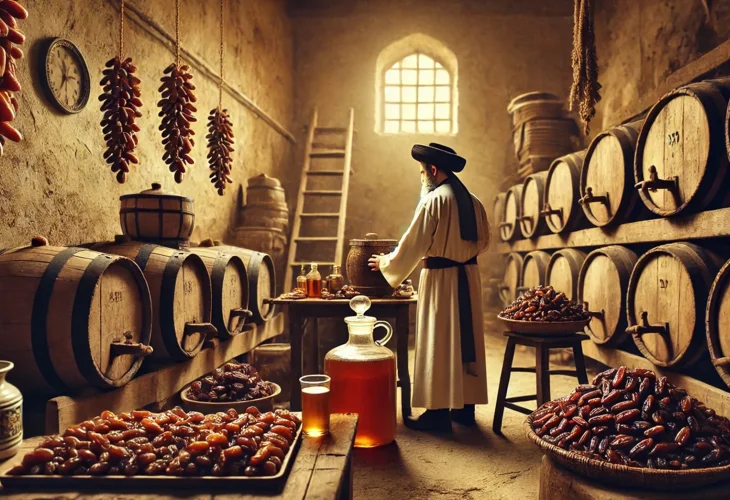Torah Personalities
Rav Pappa: The Sage, the Merchant, and the Father of Scholars
How one of the great Amoraim of Babylonia balanced Torah leadership, business acumen, and family legacy

A Disciple of Giants, A Leader in His Own Right
Rav Pappa was a distinguished student of the great Amoraim Abaye and Rava, studying under them at the famed Pumbedita Yeshiva in Babylonia. In his youth, he also learned from Rav Yosef, who had been the teacher of both Abaye and Rava. Following Abaye’s passing, Rava succeeded him as head of the yeshiva.
After Rava’s death, Rav Pappa emerged as one of the leading Torah figures of his generation. He established his own yeshiva in the city of Neresh, near Sura. Although the yeshiva did not remain active for long after his passing, it was an important center of Torah during his lifetime. Eventually, his student Rav Ashi relocated the yeshiva to Mata Mechasia, but throughout his years, Rav Pappa taught Torah in Neresh to a group of 200 scholars, as recorded in the Talmud. He was responsible for editing the standard versions of the blessing "Asher Yatzar" and the "Modim D’Rabanan" prayer.
A Life of Industry, Integrity, and Torah
Rav Pappa’s father was a merchant who supported his son’s Torah learning. One version of the Talmud records his mother’s name as Ushparti. Despite becoming a prominent Rosh Yeshiva, Rav Pappa worked to support himself by producing a date-based alcoholic beverage. The process began in Tishrei, when dates were harvested and left to ferment, and the drink was ready by Nisan, prompting a seasonal rush to buy before it sold out. His own teacher had instructed students to work during Tishrei and Nisan so they could support themselves and devote the other ten months to learning Torah.
Rav Pappa also sold poppy seeds and eventually became very wealthy. He generously supported the students in his yeshiva and attributed his wealth to a particular mitzvah: he merited receiving the priestly gifts (the foreleg, cheeks, and maw) through his wife, who was a daughter of a kohen.
One early business story illustrates both his acumen and his humility. Rav Pappa once purchased a large quantity of sesame seeds near the "King’s River" and hired sailors together with his partner Rav Huna the son of Rav Yehoshua, to transport the goods across. The sailors accepted full liability for any mishap. However, when the Persian authorities built a dam and the river dried up, the boats sank into the muddy riverbed. The sailors refused to complete the delivery. Rav Pappa insisted they honor their agreement by transporting the goods by land, but Rava ruled in favor of the sailors, and Rav Pappa accepted his teacher’s decision.
A Legacy of Torah, Integrity, and Humility
Rav Pappa raised his children in the ways of Torah, and they became outstanding Torah scholars. He once said about his son Abba Mari that although a lone witness cannot normally invalidate a financial document, his son’s honesty was so well known that his testimony alone should be sufficient.
At the end of several Talmudic tractates, a beautiful prayer mentions the names of Rav Pappa’s ten sons: “May it be Your will, Hashem our God and the God of our forefathers, that Your Torah be our occupation in this world, and with us in the World to Come. Chanina bar Pappa, Rami bar Pappa, Nachman bar Pappa, Achai bar Pappa, Abba Mari bar Pappa, Rafram bar Pappa, Rachish bar Pappa, Surhav bar Pappa, Ada bar Pappa, Daro bar Pappa.” According to the Rema, Rav Pappa would host lavish celebratory meals whenever one of his sons completed a tractate, honoring the Torah with dignity, and was therefore rewarded with such exceptional children.
Known for going beyond the letter of the law, Rav Pappa once bought a field from a man in need of money to purchase an ox. After the man changed his mind, Rav Pappa returned the field without hesitation. He was also nearly the victim of a blood libel: when attempting to collect a debt from a non-Jew, the debtor tried to frame him by hiding a baby’s body under a neatly made bed and accusing Rav Pappa of murder. Rav Pappa, sensing deceit, insisted on checking the bed before sitting down and exposed the plot.
As a dayan (judge), Rav Pappa earned a reputation for fairness and honesty. Even non-Jews sought justice in his court. He also served as a charity collector. On one occasion, a man named Zigud testified alone before his court that Tuvya had committed a sin. Rav Pappa ordered Zigud to be flogged. When Zigud protested, “Tuvya sinned, and Zigud is punished?” Rav Pappa explained: since single-witness testimony has no legal standing, his words were lashon hara (slander), for which he was liable.
Rav Pappa’s colleague and business partner was Rav Huna the son of Rav Yehoshua. The two once met Rav Chanina the son of Rav Ika on the road and told him they had recited two blessings upon seeing him: one for his Torah wisdom and one for seeing a friend after thirty days. In return, Rav Chanina said he had recited an additional blessing over them, “Blessed is the Knower of Secrets,” a blessing typically reserved for encountering 600,000 Jews, as he held them in such high esteem.
Rav Pappa passed away at the age of approximately 75. He is buried in the Ramim Ridge in the Naftali Mountains, near the Lebanese border.
A Model of Wisdom and Balance
Rav Pappa's life was a blend of Torah greatness, business integrity, humility, and dedication to family and students. His story continues to inspire generations with its powerful example of how one can live a life of Torah while fully engaging with the world.

